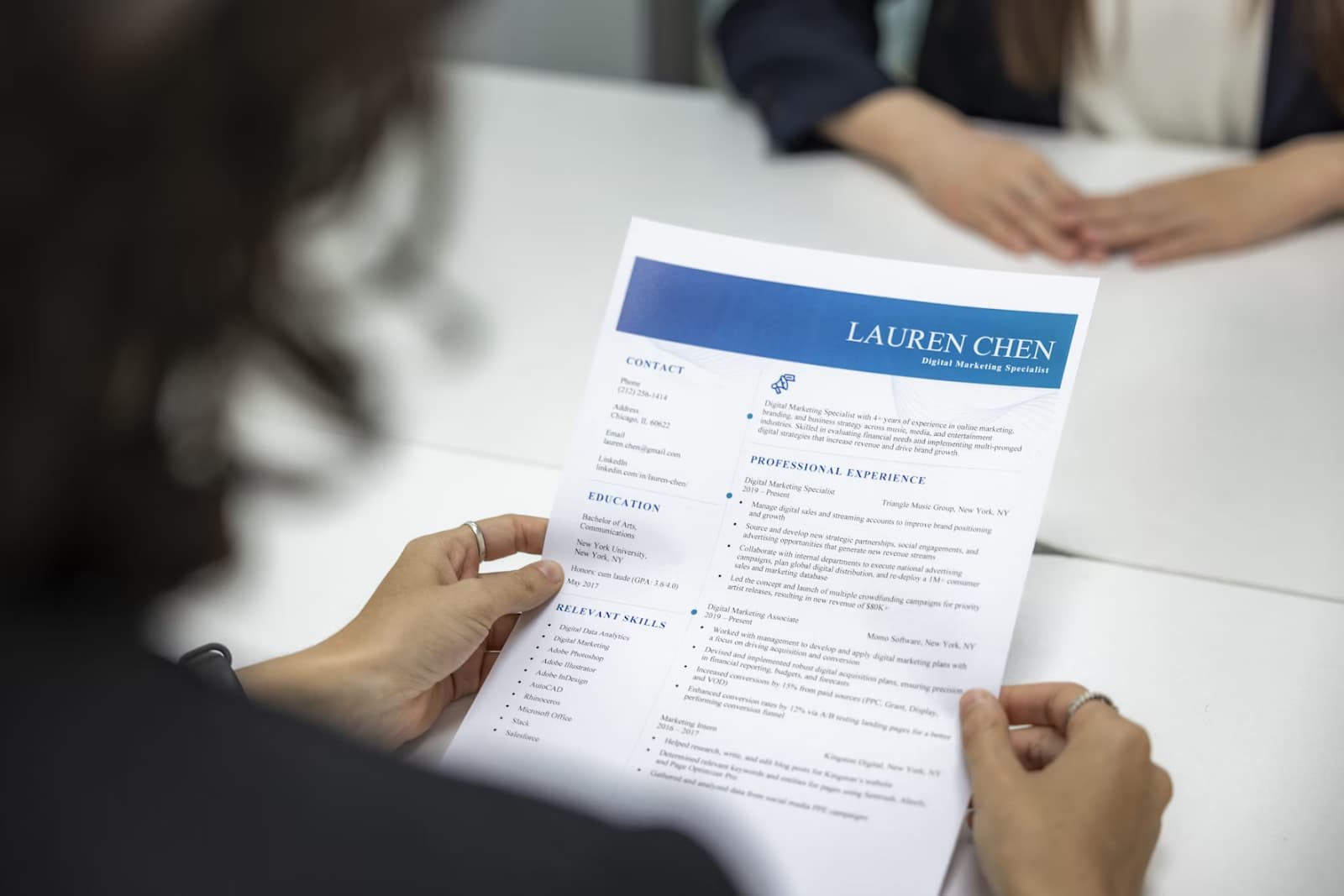Career breaks are common, but discussing them on your resume can seem daunting. This post shows you how to effectively and confidently include career breaks in your resume, ensuring they highlight your growth and readiness to re-enter the job market.
Whether your break was for personal health, family care, education, or another reason, understanding how to frame this experience is crucial. We cover the essentials of identifying valuable skills gained during your break, choosing the correct resume format, and articulating your time off in a way that appeals to future employers.
Understanding Career Breaks
A career break is when you step away from professional roles for various reasons. Common causes include personal health issues, caring for a family member, pursuing further education, or taking time for personal development. For example, you might take a year off to complete an advanced degree or to support a family member through recovery from surgery.
Recognizing the reason for your career break is the first step to explaining it effectively on your resume. It’s essential to view this time not as a gap in employment, but as an opportunity for growth and acquiring new skills. Understanding how to mention career break in resume positively is critical to making it an asset in your job search rather than a drawback.
Preparing to Write About Your Career Break
Before updating your resume, reflect on the positive aspects of your career break and identify any new skills or knowledge you gained that could benefit your career. For instance, managing a family health crisis might have improved your problem-solving and stress-management abilities. Whether travelling, you have enhanced your language skills or learned more about different cultures.
Connect these skills directly to job requirements in your field. For example, leadership and crisis management are valuable in managerial roles, while technical skills gained through self-learning are crucial for tech jobs. Linking these skills to your resume shows potential employers that your time off was a period of growth and learning, making you a stronger candidate.
Structuring Your Resume to Include a Career Break
When including a job break on your resume, choosing the correct format is crucial to effectively presenting your experience. Two standard formats are chronological and functional resumes. For more insights and assistance, consider analyzing some of the best resume writing services available. These services can offer guidance tailored to your specific situation, helping you highlight your career break positively.
- Chronological Resume: This format lists your work history in reverse chronological order. If you opt for this style, include your career break similarly to a job entry. Please place it in the timeline at the point the break occurred. For example:
- Professional Sabbatical, June 2019 – May 2020
Dedicated time to professional development and advanced digital marketing coursework. Enhanced skills in SEO and Google Analytics.
- Functional Resume: This style focuses on your skills and experiences rather than your chronological work history. It’s ideal whether your break is extensive or you’re changing industries. Group your skills into categories, and under each, include relevant experiences from before, during, and after your break:
- Skill Category: Digital Marketing
Advanced proficiency in SEO, developed through coursework during a year-long professional development break. Demonstrated ability to improve search engine rankings and user engagement.
Writing About Your Career Break: Dos and Don’ts
When detailing your career break on your resume, emphasize the positives and articulate your experiences in a way that highlights your professional growth. For further insight into enhancing your resume, you might find it helpful to understand common reasons why candidates didn’t get the position. This information can help you tailor your CV more effectively and prepare for future opportunities.
Do:
- Specify Achievements and Skills: Mention any new skills, certifications, or knowledge acquired during the break. Whether you engaged in volunteer work, describe how it enhanced skills relevant to your career, such as project management or communication.
- Use Positive Language: Present your time off as a proactive professional development period. Rather than saying, “took time off to recover from burnout,” phrase it as “pursued a personal development period to enhance leadership skills and mental resilience.”
Don’t:
- Over-share Personal Details: Keep personal reasons off your resume and focus on your professional development.
- Apologize for the Break: View your break as a favorable period of growth, not a setback. Showcase it as an intentional choice that adds to your qualifications and sets you apart as a candidate.
Highlighting Transferable Skills and Achievements
When adding your career break to your CV, directly tie the skills you developed during this time to the job requirements you want. This strategy demonstrates that your break was not just a hiatus but a period of valuable skill-building that makes you a stronger candidate. For example, Whether you led a community project, highlight how it enhanced your ability to manage projects and lead teams, skills that are beneficial in many professional settings.
For more tips on tailoring your resume for specific opportunities, such as a job fair, you can check out resume for job fair. This resource offers further insights on optimizing your resume to stand out in diverse job-seeking environments.
Phrase your experiences clearly, such as “Managed a community initiative that achieved its goals ahead of schedule, improving my leadership and strategic planning skills,” or “Improved my Spanish to a business-proficient level and used it to facilitate cross-cultural workshops.”

Sample Resume Entries
When listing a job break on your resume, ensure it showcases how you’ve used the time productively. Here are a few examples:
- Professional Sabbatical: June 2018 – August 2019
Completed an MBA with a focus on Strategic Management, engaging in practical projects that sharpened my leadership and analytical skills.
- Family Care Leave: September 2019 – March 2021
Took on full-time care duties, developing organizational solid and crisis management skills. Also volunteered as a community organizer, coordinating projects and improving my communication abilities.
Conclusion
This post equips you with the tools to confidently address career breaks on your resume, transforming a potential obstacle into a compelling part of your professional story.
Remember, the key is to present any breaks positively, emphasizing the skills and experiences acquired during that time. Whether you pursued further education, developed new skills, or took on voluntary roles, each expertise adds value to your resume.
By strategically positioning these periods of growth, you not only reassure potential employers of your continual development but also enhance your appeal as a well-rounded candidate. Armed with these insights, you’re ready to craft a resume that explains and champions your job breaks.
